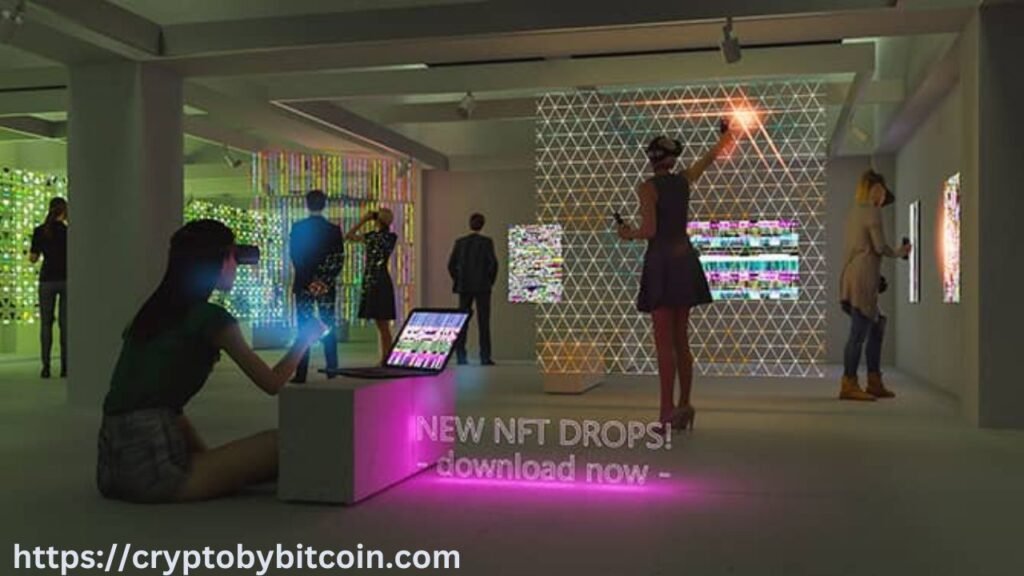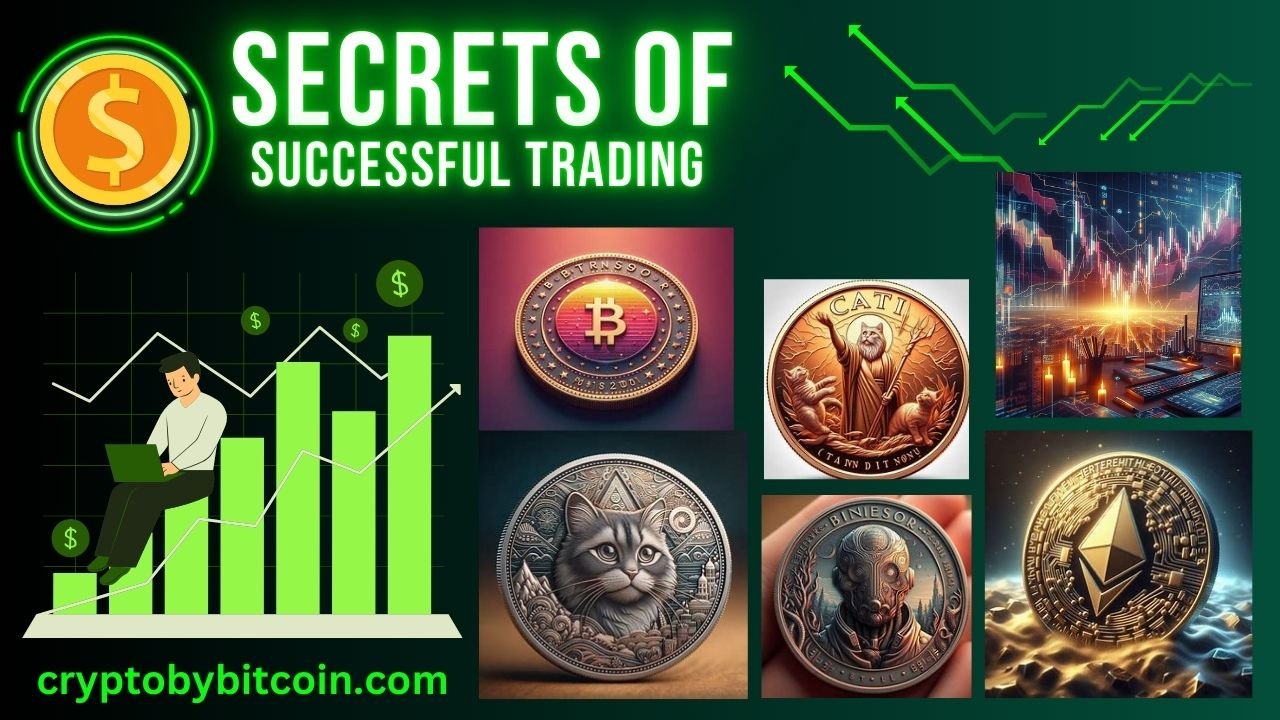In 2024, the NFT market has exploded, with volumes estimated at approximately $22 billion , 280,000 buyers and sellers, and 185,000 unique wallets. However, as the market grows, so do the opportunities for cybercriminals. Scams involving NFTs, NFT art, and NFT games are increasingly being reported. This article explains NFTs and how to avoid NFT scams.
What is NFT?
NFT is a non-fungible token. In this context, non-fungible means unique, for example, bitcoins are fungible: one bitcoin can be exchanged for another, they have the same value, but NFT is non-fungible:the main point is that these are unique and they cannot be directly replaced by another NFTs. NFT can be presented in any form: a photo, video, audio file, etc. The excitement around NFTs is also explained by their ability to use technology to sell and collect digital art.
In essence, an NFT is a digital asset. This aspect is what highlights the fact that an NFT is a token. When you purchase an NFT associated with a digital asset, you do not become the owner of the asset itself and cannot reproduce or use it for commercial purposes. You become the owner of a record of the purchase on the blockchain, which you can save or sell to someone else.
How does NFT work?
NFTs sit on top of a blockchain — a ledger of transactions stored across multiple computer systems — and point to a web link, such as an image file. NFTs are stored primarily on the Ethereum blockchain, although other blockchains also support them.
NFTs are created on the basis of digital objects that are both tangible and intangible entities. Among them:
- Art objects
- Gifs and memes
- Video
- Collectibles
- Virtual Avatars
- Music
And that’s not a complete list. NFTs can be created based on almost anything: Jack Dorsey, the founder of Twitter, sold an NFT based on his first tweet for more than $2.9 million .
NFTs are the digital equivalent of collectibles: instead of receiving the actual artwork to display, the buyer is purchasing a digital file that gives them exclusive ownership, as an NFT can only have one owner at a time. Unique data associated with each NFT allows for proof of ownership. Owners and creators can also store specific information in the NFT, such as the author’s or owner’s signature in the NFT metadata for an article.
To purchase NFTs, you also need cryptocurrency. There are marketplaces where you can browse and trade NFTs. The most famous of these are OpenSea, Rarible, and Foundation. Some people think that NFTs are a way to support digital art, but on the other hand, any transaction on the blockchain involves resource costs. When making transactions with NFTs, it is important to be aware of the risks associated with them, including NFT scams
Types of NFT Scams
Both cryptocurrency and NFTs are under-regulated areas, and bad actors can exploit their vulnerabilities to commit fraud. NFT-related Ponzi schemes, OpenSea scams, NFT art financial frauds, and more have been in the news. The most notable NFT scams are described below.
Fake websites
Third-party marketplaces like OpenSea facilitate NFT transactions and ensure that trades are secure. However, attackers can create fake marketplaces with similar web addresses to deceive users. The visible components of an NFT—the image and text information—can be easily copied, meaning that fake marketplace websites can be made to look very similar to the real thing.
Investor fraud
Investor scams are scams that involve aggressively advertising an asset on social media, causing the asset’s price to rise. Once the scammers have received investors’ money, they stop supporting the asset, causing its value to fall and investors to lose money. A variation of this is when NFT developers block the ability to sell a token: they add code that prevents it from being sold, and buyers are left with an unsellable asset.
Pump and Dump Market Stimulation Schemes
Market rigging schemes involve deliberately buying up NFTs to artificially inflate demand. Unsuspecting buyers assume the NFTs are valuable, join the auction, and begin bidding. Once the asset’s price rises enough, the scammers sell the NFTs for a profit, and buyers end up with worthless assets.
Phishing scam
Before purchasing an NFT, you must register a crypto wallet. NFT phishing scams typically use fake ads, such as those on Discord, Telegram, and public forums, asking for personal wallet keys and a 12-word security phrase. Scammers may also pose as MetaMask wallet support and send fake emails warning that the wallet will be blocked due to security issues. These emails prompt the user to click a link to verify their account. NFT phishing scams are designed to obtain personal information and steal funds from a digital wallet.
Customer Service Scam
As with phishing , attackers pose as technical or customer support staff of blockchain trading platforms and contact unsuspecting users on Telegram or Discord. Under the guise of helping solve problems, scammers send links to fake, but very similar to real sites, in order to obtain personal data and access to cryptocurrency wallets. In addition, they may ask to send a screenshot to solve the problem. In fact, they want to get the credentials of the cryptocurrency wallet.
Price fraud
You can face a price fraud when you resell the purchased NFTs on the secondary market. Bidders may change the proposed sale currency to a lower-value cryptocurrency without informing the seller after posting an NFT sale order. This can result in potential losses for the seller if they fail to double-check the currency before making the deal.
Fake NFTs
Scammers can copy an artist’s work and list a fake version on an NFT marketplace. Unsuspecting buyers can purchase a counterfeit, worthless NFT.
NFT Giveaways
On social media, scammers can pose as legitimate NFT trading platforms and advertise NFT giveaways. Typically, scammers promise to give away an NFT for reposting the ad and registering on the website. After registering, they are asked to link your wallet credentials to receive the gift. Once the credentials are known, scammers can access and steal your account.
Fraud against investors
Due to the anonymity that comes with cryptocurrency trading, investors often fall victim to scams when trading NFTs. Taking advantage of the anonymity, scammers create seemingly viable projects, attract investment, and then disappear without a trace with the funds received from potential customers.
Examples of NFT Scams
2021 Evolved Apes
One NFT scam in which a developer ran away with investors’ money took place in October 2021. A collection of 10,000 NFTs called Evolved Apes hit the market. Each buyer was supposed to receive a unique ape character with certain abilities. The apes could fight each other in a fighting game (which was never actually made) and the prizes were promised to be cryptocurrency. The initial NFT offering was aimed at raising funds for the development of the game. However, immediately after receiving 798 ether (at the time, approximately $2.7 million), the developer, known by the pseudonym Evil Ape, disappeared, leaving investors with only a jpeg image.
2021 г. Fractal
Fractal is a marketplace for gaming NFTs. In 2021, users lost over $150,000 in cryptocurrency as a result of participating in a scam NFT giveaway . Buyers hoped to receive an NFT from a limited edition, but they were in for an unpleasant surprise: the link posted on the project’s official Discord channel turned out to be a scam created to steal cryptocurrency. Some people connected their crypto wallets to recive the free found NFT but in such cases their crypto assets had been transferred to the scammers’ account.
2022 Frosties
The Frosties NFT scam has led to the theft of at least $1.2 million by defrauding investors: the creators of an NFT collection called Frosties absconded with their funds. They cut off all communication with participants and abandoned the community, which at its peak had about 40,000 users who were expecting various rewards but were left with nothing.

How to Avoid Being a Victim of NFT Scams?
Do your own research
Before making a deal, check all its details. Is the trading platform used reliable and well-known? Can you view the transaction history of the buyer or seller? Read reviews and look at the level of support from the creators of the project, try to find out if there were any complaints about transactions with them before. When you are investing in a project, check its developers status and make sure they are reliable investors.
Do not open files from unknown senders.
Attackers are developing viruses that target cryptocurrency wallets. Do not click on links in unwanted emails – they may lead to fraudulent sites. Do not click such those links or open attachments which are come from an unknown sources.
Participate in sweepstakes with caution
Despite the widespread popularity of NFT giveaways, they can often come with security risks. This means that attackers can attach authorizations to the NFT to access your wallet, sell assets, and do other things. Never accept NFTs from unknown or untrusted parties.
Do not share your private key and mnemonic phrase with anyone.
Keep your private key in a safe place where anyone anonymously cannot entire with out your permission. With this information, an attacker can access your crypto wallet and delete all NFTs or cryptocurrency from there. Use strong passwords for your crypto wallet and other NFT accounts. Use two-factor authentication for NFT accounts if possible.
Make sure the author of the project is reliable
Before transferring the funds, verify and doublecheck the contact information of the NFT creator and confirm that he is not a scammer .Make sure that the project authors are honest and do not hide their identities. If information about the people behind the project cannot be found, this is a suspicious signal.
Use official websites
Always go directly to trusted websites for crypto transactions, do not use links and pop-ups to enter your crypto wallet keys. Avoid overly attractive deals – they can lead to dubious blockchain networks.
Don’t visit untrusted sites
Sometimes a small typo in a web address can lead to the wrong site, and in the world of NFTs, scam sites can be extremely dangerous. Double-check the web address to make sure you are getting to the right site, and never do anything suspicious or inconvenient. Remember, if an offer is so tempting that it seems like a scam, it probably is.
Double check the price of the NFT project
Before you make an NFT purchase, check the price on an official trading platform like OpenSea or similar. If the price is lower than the legitimate trading site, be careful – it may be a scam.
Use disposable wallets
A disposable wallet allows you to limit the amount of funds for a given purchase, including transaction fees. This reduces your exposure to fraud.
Check the details of the project author
Most legitimate NFT sellers on OpenSea and other marketplaces have a blue check mark next to their name and clearly list the properties of the collection. Make sure the artist you are buying NFTs from has a verified account and is legitimate. Find them on social media or their own website. You can ask the artist directly if they own the piece you want to buy and if you have found the right user profile.
FAQs : Avoid NFT Scams
1. How to Avoid NFT Scams?
Stick to verified NFT marketplaces, double-check seller authenticity, avoid unknown links, and protect your wallet details to stay safe.
2. How do nft scams work?
NFT scams often involve fake projects, impersonation, phishing links, or price manipulation to deceive buyers and steal funds.
3. How to report nft scams?
Report NFT scams to the platform, reach out to blockchain security firms, or notify cybercrime authorities to help stop fraud.
Conclusion : Avoid NFT Scams
NFTs (non-fungible tokens) are unique digital assets stored on blockchain technology, unlike fungible items like Bitcoin. They represent ownership of a digital certificate for assets like art, videos, or collectibles, rather than ownership of the item itself. Major NFT marketplaces like OpenSea verify authenticity, but scams abound in this largely unregulated space.
Common NFT Scams:
- Fake Websites: Counterfeit marketplaces mimic real ones to trick users into buying worthless NFTs.
- Investor & Price Manipulation: Scammers create hype to inflate NFT prices or switch currencies without notifying the seller.
- Phishing Attacks: Fake emails request wallet keys or recovery phrases, resulting in stolen assets.
- Customer Support Impersonation: Fraudsters pose as support on forums to access wallets.
How to Protect Yourself:
- Research Thoroughly: Check the legitimacy of platforms and creators.
- Guard Private Info: Avoid clicking suspicious links or sharing wallet keys.
- Use Trusted Sites: Stick to verified marketplaces and cross-check prices.
Explore more NFT insights at Jaysonlinereviews.com for a safe investment journey



